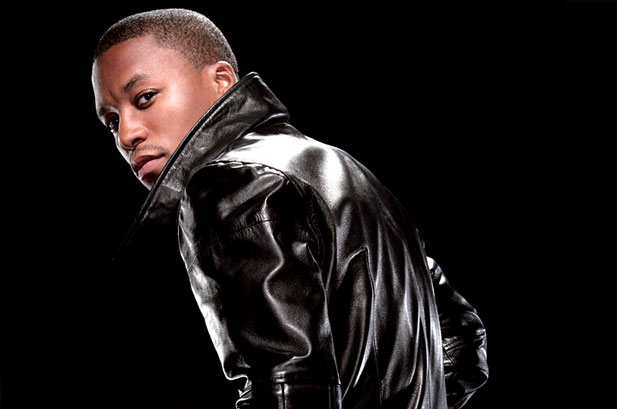Lupe Fiasco has always been the darling of music critics and the hip-hop intelligentsia. He’s militant in his opposition to pop rappers and loses no sleep over his inability to “compete with Wiz Khalifa for the attention of a 12 year old.” But Lupe still has real radio teeth. A fact known to Lupe’s label of the last 10 years, who have constantly put pressure on the artist to dumb down to get radio play. Many thought it strange when Lupe released a ‘sequel’ to his classic Food and Liquor. Only Atlantic Records could have forced an artist with such integrity to fall for such a money-grubbing hip-hop cliché. Lupe spoke openly on Sway about the direction Atlantic wanted to take Testuo and Youth. It wanted singles with features from household names like Ed Sheeran and Ty Dolla. “Soft ass records” says Lupe. Lupe was soon embroiled in another dispute with Atlantic who threatened to cancel the album. It wasn’t until the hacker group Anonymous (the archetypal Lupe fan) threatened the label that an official release date was secured. Needless to say none of the original singles were included on Testuo and Youth.
Tetsuo and Youth is the fifth studio album from Lupe Fiasco, and marks the end of his unhappy marriage with Atlantic Records. The album is folksy, clunky and gargantuan (with the cool running time of 80 minutes.) In true Lupe brilliance, he uses the homonym of “sine” and “sign” to warn against giving your life away to record labels… and creating too many parabolas over a straight x-axis… But Lupe doesn’t waste 80 minutes burning down bridges. Instead he crafts his magnum opus, filled with the incredible imagery and dazzling wordplay that we’ve come to expect from this rap titan.
Separated by the device of four musical interludes representing the seasons, Testuo and Youth is hard to sonically pigeonhole. The first half is lush and idyllic; it tries to evoke the prairie or the music of an ancient peasantry. There’s banjos and hillbilly violin, as well as big orchestral movements. Sacred Geometry sounds like a piece from the courts of feudal China. The second half of the album is very different. It’s grungy, minimal, southern, sparse and even dull. It’s got a mild interest in electric guitar and rock music. The production whilst interesting, is a weakness. One that’s probably dogged Lupe for his whole career. Nonetheless, it’s not a distraction from the centrepiece: imagery and wordplay.
“I prefer my pictures in word form” says Lupe on Mural. Lupe has a keen interest in painting, and the relationship between words and images. He created the cover art himself, and the scenes he conjures on Tetsuo and Youth are some of the most vivid of his career. Adoration of the Magi contains one of the most interesting images in hip-hop; using the frame of the adoration of the magi to explore the music world’s fixation with babies. “Why you ready to die, you just a baby?” Lupe asks, referencing the afro-toting baby featured on the Biggie debut, Ready to Die. “Quit chasing money, never mind, you just a baby” says Lupe, referencing the iconic cover art for Nirvana’s Nevermind. In each of these allusions, he warns against ‘growing up too fast,’ a reflection on young African-Americans becoming hardened gangsters so young, which is of course the visual message behind the tattooed and crying baby featured on Lil Wayne’s Tha Carter III (also referenced.) In Deliver Lupe uses the image of a pizza man who refuses to make deliveries to dangerous Chicago neighbourhoods. There’s definitely some humour in this picture, particularly lines that refer to the comical pizza franchises themselves. But that humour is black, because it explores the very real, and very frightening state of Chicago ghettos.
Lupe is distinguished as a rapper for his lyricism. He’s always been a craftsman, and as far as technical skill is concerned, Tetsuo and Youth is probably his best venture. It’s only through detailed study that you can fully appreciate the complexity of his lines. Even on a fifth or sixth listen you’ll still stumble across a clever homonym, some fine assonance or an obscure historical reference that you didn’t see before. Lupe shows off his wicked intellect with a mythological reference on Body of Work. “Oedipus wrecks, motherfucker this better than sex / material potion the love of my martyr / currency soaked in the blood of my father.” This line is my personal standout; it works on about five levels and could be picked apart for days. On Prisoner, Lupe tells us that love involves looking over various errors. Hate, on the other hand, involves habitually accelerating terror, everywhere. It’s only when this line is written out that you can see the acronym for L.O.V.E and H.A.T.E. Lupe takes the very letter components of the word to elaborate its meaning. Sometimes it seems that he has to help out fans, explaining the full depth of his lines – he revealed on Twitter that “pizza man” was also a homonym for “peace of man.” The full line then reads, “peace of man don’t come here no more, deliver(ance).”Again, the line is doubly potent with a reference to religion. This is a twist that not even a rapgenius could figure out.
Just as Atlantic feared, Tetsuo and Youth is not an easy listen. When I have the CD in my car, I can only really cycle between about four songs that have a bigger beat and a fun hook. The rest of the album is much more subdued and introspective – not music to be playing loud with the windows down on the open road. That’s not to deny the albums genius. It grows on you with every listen. It’s abundantly clear that Lupe has constructed something really impressive. Like many great works of art, it may only be properly appreciated in years to come.
7.5/10

